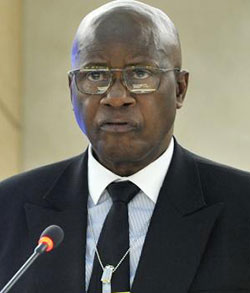Some have explained to me that “practicing at the top of your license” is a way of encouraging lawyers to work on the highest-value client matters and perhaps even be rewarded monetarily. Others have explained that this refers to the end of repetitive, manual work. Consequently, it will lead to more impact and career satisfaction for lawyers.
These are intriguing, though admittedly very different, explanations. So, I crowdsourced the answer. What does “practicing at the top of your license” mean to you? My network, as always, had many of their own thoughts to share!
Going Beyond The Law
Lourdes M. Turrecha, the chief privacy tech evangelist of The Rise of Privacy Tech, and founder and CEO of PIC LLC, said, “I interpret it to mean going beyond what the law says and providing value to the client by incorporating risk-based inquiries, such as the likelihood of the risk, risk mitigations, industry benchmarks, etc. Because it’s not helpful to tell clients the law prohibits you from doing X when the law hasn’t been enforced in 10 years, and the rest of the industry ignores it anyway.”
Matthew Coleman, the cyber, privacy, and data innovation managing associate at Orrick, Herrington & Sutcliffe, said, “Actors and comedic improvisers have a similar phrase: ‘Play to the top of your intelligence.’ It means that you can play a character who is not smart, so long as you use your intelligence to enliven that character with real attributes and motivations so that you create a living, breathing, three-dimensional human being. Otherwise, the character will just be an unbelievable, cartoonish stereotype.”
He continued, “I believe a similar interpretation applies here. Lawyers should use every tool in the toolkit granted under the law in his/her/their practice of the law. That means it’s not enough just to mark up contracts, just as it’s not enough for an actor to use a silly voice or an accent in creating a character.” He continued, “Representation of clients requires a full 360-degree view of the facts, the law, the issues and risks, the options, the lawyer’s past experiences, the client’s past experiences, and the likely turn of the tides in order to counsel, advocate for, and defend the interests of your clients. Similar to Lourdes’ view, this means going beyond just doing the legal work and what the law says to bring a full multifaceted, three-dimensional analysis of what’s right for the client.”
Evolve, Learn, And Add Value
Colin Levy, seasoned in-house counsel, and legal technology and legal innovation thought leader, said, “To me, it means always evolving, always seeking to bring more value to your role, always learning, and always being keenly aware that you do not know everything.”
Jamie Szal, an associate of Brann & Isaacson, said, “For me, practicing at the top of my license not only means to the best of my abilities but also to mean that I should constantly strive to make my abilities better. This gets at the curiosity drive Colin Levy alluded to. It also gets at knowing what my limitations are so that I can either improve them or delegate to someone best suited to pitch in.”
Talar Herculian Coursey, general counsel at Vista Ford, said, “For me, it’s not so much about my license as it is about my experience. I’m originally an employment lawyer, and I still consider myself an employment lawyer first and foremost, even after nine years as general counsel. But, giving the best of me to my employer is usually something other than employment law advice. I sometimes feel like the ‘license’ can be an unnecessary shackle.”
Teach Others And Give Work Away
Heather Meeker, the technology transactions partner at O’Melveny & Myers LLP, and founding portfolio partner of OSS Capital, said, “Here is one way of looking at it. Once you have done a task enough times to be comfortable at it, teach it to someone who works for you. The more work you give away, the more you get.”
“My interpretation of ‘practice at the top of your license’ means to do the work that can be done exclusively by you, whether it be trying a case, working with a client, or allocating your time to innovation,” said Shari E. Belitz, CEO of Shari Belitz Communications, an educational consulting company that teaches lawyers, insurance industry professionals, and companies how to use social psychology to achieve favorable litigation outcomes at settlement or trial. She continued, “However, there are (at least) two prerequisites to being able to ‘practice at the top of your license’: 1) developing/teaching/mentoring so you have strong bench strength, and 2) having learned the operations/process beginning to end before you are able to focus on the high level.”
Olivia Vizachero, owner of The Less Stressed Lawyer, supports this view. She said, “I’m adopting Shari Belitz’s answer as my own. I think she hit the nail on the head here.”
Victoria Pynchon of She Negotiates Consulting said, “It means ‘delegate’ — something old-timers used to do more than the current crop of senior associates and junior partners. It frees you up to bring the savvy, wisdom, and skill of your years of expertise to every venture and train the next generation at the same time. Let a first year take a nonessential deposition, argue an easy motion, write the first draft of everything. It doesn’t mean work only on highest-value client matters. That would be unethical.”
Practicing “at the top of your license” is an open-ended phrase, but it also serves as a valuable starting point for discussions about how we as lawyers can practice more ethically, effectively, and creatively. Whatever it’s supposed to mean, it challenges us to think about how we can be better at what we do and to think of new ways of getting that done. As professionals, we can become complicit in what we do; why not instead constantly look and ahead and strive to do that better?
What does “practicing at the top of your license” mean to you?
 Olga V. Mack is the CEO of Parley Pro, a next-generation contract management company that has pioneered online negotiation technology. Olga embraces legal innovation and had dedicated her career to improving and shaping the future of law. She is convinced that the legal profession will emerge even stronger, more resilient, and more inclusive than before by embracing technology. Olga is also an award-winning general counsel, operations professional, startup advisor, public speaker, adjunct professor, and entrepreneur. She founded the Women Serve on Boards movement that advocates for women to participate on corporate boards of Fortune 500 companies. She authored Get on Board: Earning Your Ticket to a Corporate Board Seat and Fundamentals of Smart Contract Security. You can follow Olga on Twitter @olgavmack.
Olga V. Mack is the CEO of Parley Pro, a next-generation contract management company that has pioneered online negotiation technology. Olga embraces legal innovation and had dedicated her career to improving and shaping the future of law. She is convinced that the legal profession will emerge even stronger, more resilient, and more inclusive than before by embracing technology. Olga is also an award-winning general counsel, operations professional, startup advisor, public speaker, adjunct professor, and entrepreneur. She founded the Women Serve on Boards movement that advocates for women to participate on corporate boards of Fortune 500 companies. She authored Get on Board: Earning Your Ticket to a Corporate Board Seat and Fundamentals of Smart Contract Security. You can follow Olga on Twitter @olgavmack.
 Staci Zaretsky is a senior editor at Above the Law, where she’s worked since 2011. She’d love to hear from you, so please feel free to email her with any tips, questions, comments, or critiques. You can follow her on Twitter or connect with her on LinkedIn.
Staci Zaretsky is a senior editor at Above the Law, where she’s worked since 2011. She’d love to hear from you, so please feel free to email her with any tips, questions, comments, or critiques. You can follow her on Twitter or connect with her on LinkedIn.










 Olga V. Mack is the CEO of
Olga V. Mack is the CEO of 




 Jordan Rothman is a partner of
Jordan Rothman is a partner of 


